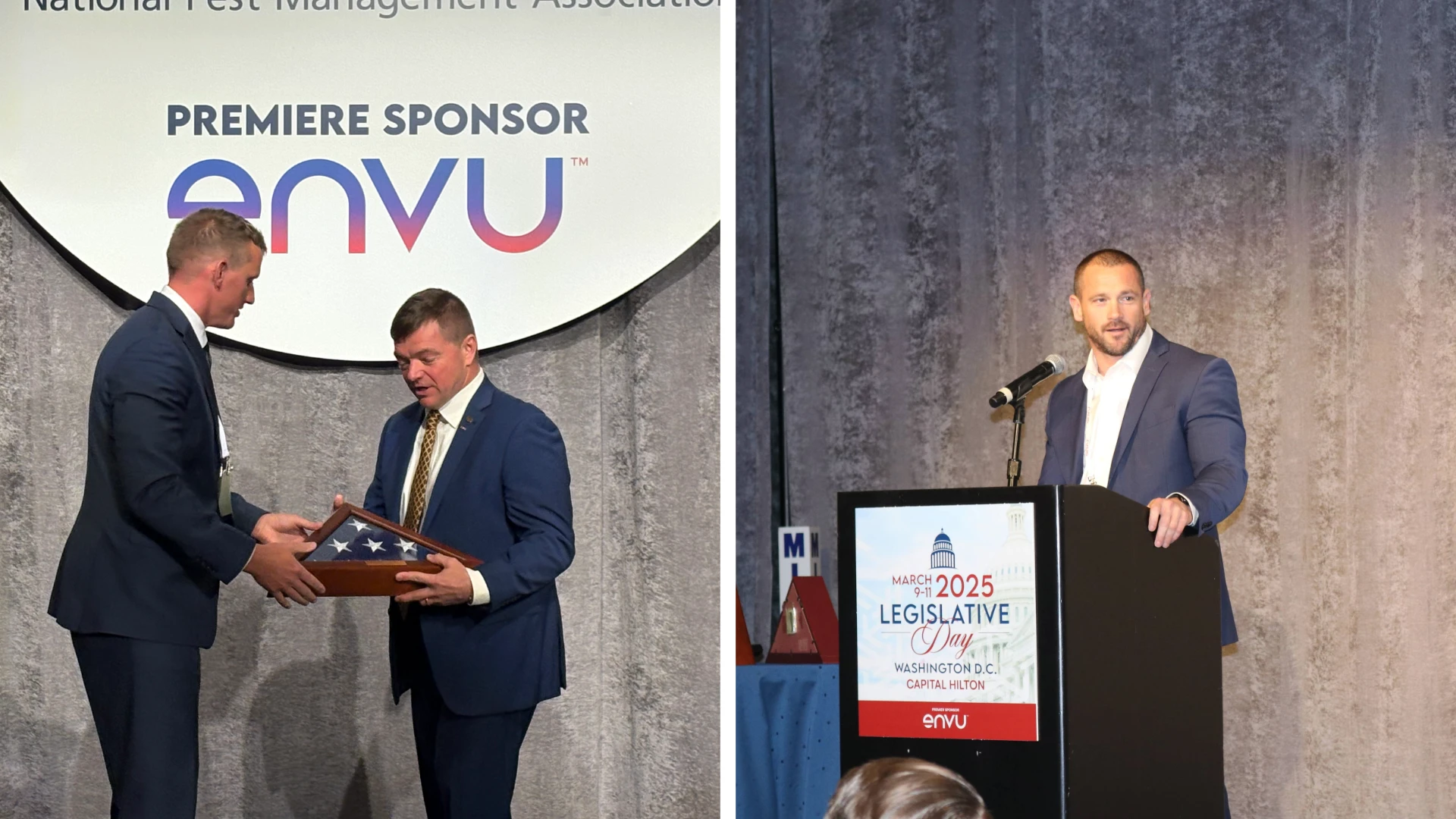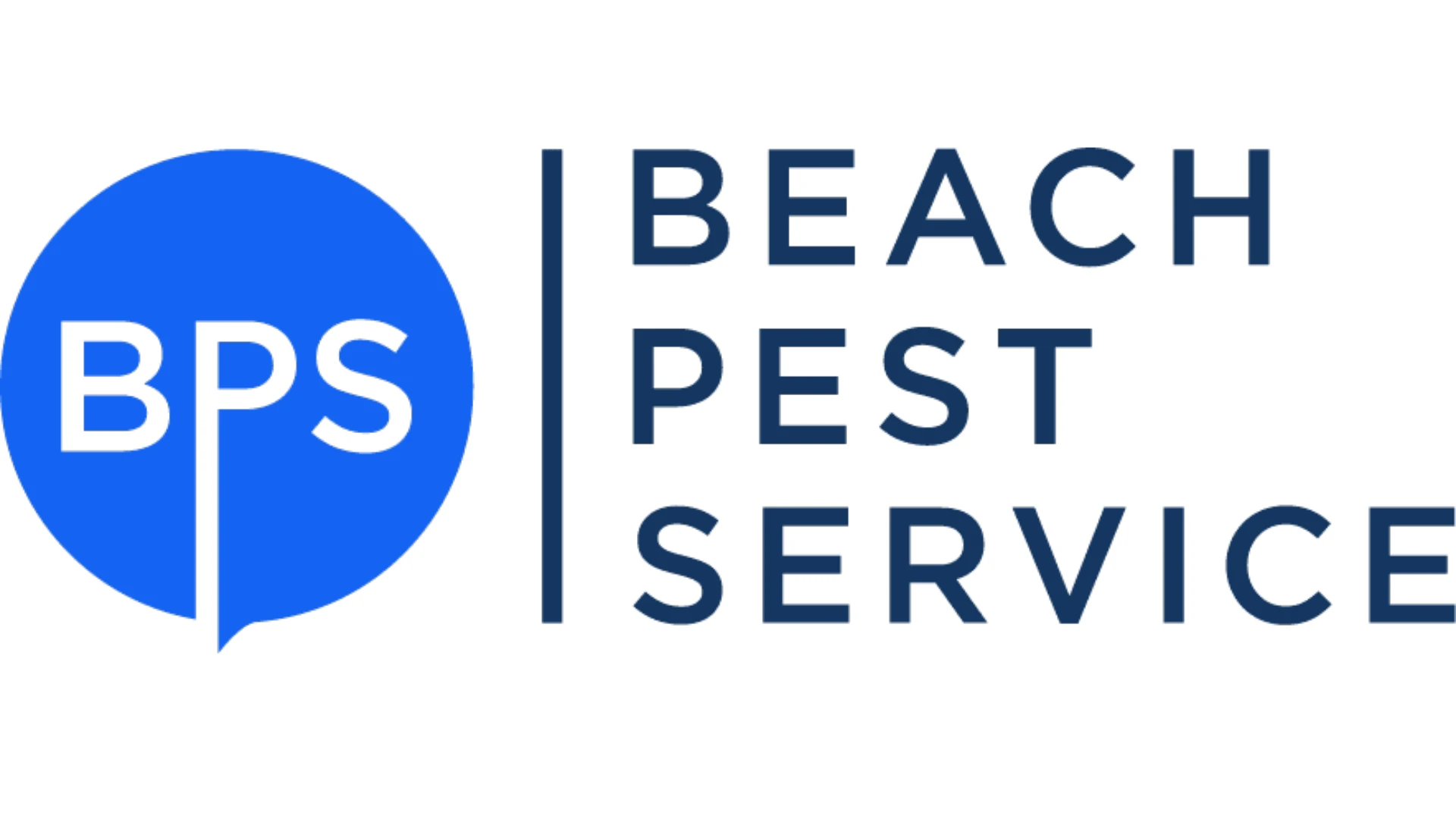Editor’s note: The following article originally appeared in the July issue of PCT magazine. At the time of publication, Mike McDermott had recently been named head of U.S. Professional Pest Management Business for Bayer ES. After the article was published Bayer announced management changes at its corporate headquarters site. McDermott left Bayer ES to become global head of non-crop business for Dupont and Steve Burt was named head of U.S. Professional Pest Management Business for Bayer. (To read about Bayer’s recent appointments CLICK HERE.)
Like major league baseball, it’s becoming increasingly difficult to identify the key “players” in the pest control marketplace without a scorecard. Basic manufacturers and the compounds in their respective product portfolios are changing hands at a pace never before seen in the history of the industry, resulting in dynamic market changes that pest management professionals find both exhilarating and unsettling, particularly when it involves the highly lucrative termite market.
|
BAYER ENVIRONMENTAL SCIENCE AT A GLANCE |
|
· Bayer Environmental Science encompasses products from Aventis Environmental Science, Bayer Garden & Professional Care, and Bayer Environmental Health. · Bayer Environmental Science consists of two separate business units – Professional Products and Consumer Products. · The Professional Products Group serves three markets – professional pest management, the green industry, and the vector control and rural hygiene industries. |
The industry’s latest episode of “Let’s Make A Deal” involves the acquisition of Aventis CropScience by Bayer AG, a transaction that cleared one of its last, and perhaps most significant, regulatory hurdles when the U.S. Federal Trade Commission (FTC) approved the purchase on May 30. The European Union Commission had given the green light to the $6.2 billion takeover six weeks earlier on April 17, laying the foundation for one of the most talked-about – and widely anticipated – buy-outs in recent history.
A COMPLEX DEAL. While there was little concern the deal between these two chemical company “heavyweights” would be nixed by the FTC, parties for both multi-national firms expressed uncertainty as to which pest control and lawn care products the new entity would be required to divest to ensure a competitive marketplace. After more than six months of uncertainty, that question was finally answered with the FTC’s recent consent order. Bayer has been instructed to sell all fipronil-based products, the intellectual property associated with the widely used active ingredient and the Aventis CropScience fipronil production facility in Elbeuf, France by the end of November, 180 days from the date of the FTC announcement. (Editor’s note: Fipronil is the active ingredient in Termidor, a popular termiticide, and Chipco TopChoice, a fire ant product.)
In a surprising twist, however, the FTC will allow Bayer to “license back any intellectual property included in the fipronil assets for non-agricultural use to increase competition in these markets,” meaning additional fipronil-based termiticides could eventually be brought to market, although industry insiders say that scenario, while not out of the realm of possibility, is unlikely. “Bayer will have an opportunity to buy some uses of fipronil back, but the real value of the compound is in having the exclusive rights to the chemistry,” said one highly placed chemical company executive who requested anonymity due to the sensitive nature of the negotiations.
|
ONLINE ONLY: Some Familiar Faces |
|
Bayer Environmental Science will feature a new organizational structure, but it’s a structure that will feature some familiar faces from both organizations. Bayer ES is one of three major business groups within Bayer CropScience, along with Crop Protection and Bio Science. The Bayer Environmental Science organization will be comprised of two distinct business units – Professional Products and Consumer Products. The Professional Products business unit will provide products to the professional pest control, green industry and vector markets. The Consumer Products business unit will operate in the consumer lawn and garden sector and will manage the sale of active ingredients and concentrates to other companies in the market. The Worldwide Head of Bayer Environmental Science is Pascal Housset. Reporting to Housset, is Dr. Helmut Schramm, Global Head of the Consumer Products Business Unit, and Chris Clarke, Global Head of the Professional Products Business Unit. Reporting to Clarke will be Josh Weeks, who heads the North American Professional Products business. Manager of the Professional Pest Management Industry will be Stephen Burt. Manager of the company’s Green Industry portfolio will be Dan Carrothers, another familiar face to PCOs through his association with Bayer Garden & Professional Care. The company’s Vector Control and Rural Hygiene Industry Manager will be Robin Slatter. All three groups will be headquartered in Montvale, N.J. The company also will maintain research farms in Clayton, N.C. and Vero Beach, Fla. Reporting to Dr. Schramm is Dr. Ulrich (Bob) Trogele, who heads the North American Consumer Products Division. Further organization announcements, including sales and marketing staff, will follow as the two organizations continue the integration process. In addition, operations of the two former companies will continue on parallel tracks during the integration process. “Our vision as Bayer Environmental Science is to support the evolving needs of our customers, by investing in the financial and human resources needed to develop new products and technologies,” Weeks said. “Near-term goals include the effective completion of the integration process, utilizing the best attributes, processes and systems of both Bayer and Aventis Environmental Science.” The merged company will sell and market one of the most comprehensive product portfolios in the pest control industry, a stable that includes Premise, Tempo, Suspend, DeltaGard and the newly acquired Maxforce family of bait products. |
Which raises yet another question: Why would Bayer agree to divest fipronil rather than imidacloprid, the active ingredient found in its popular Premise termiticide? After all, despite being used on more than 1 million homes, imidacloprid loses its patent protection in 2006, four years earlier than fipronil, a lifetime in the chemical industry. “It wasn’t easy coming to this decision,” said Mike McDermott, global head of non-crop business for DuPont and former vice president of professional products at Aventis Environmental Science. “While fipronil has become a major player in the professional pest management market in a relatively short time, Bayer had to look at the overall commitment it had to imidacloprid in all markets, including specialty markets. Imidacloprid is considered to be the top insecticide in the world, across all markets. It is important to realize that the decision is related to all markets, not just the specialty markets.”
WHAT’S NEXT? To protect the market position and intellectual assets of fipronil during this critical transition period, Karl Kisner, formerly Termidor Product Manager at Aventis Environmental Science, has been named Hold Separate Manager – Fipronil ES. While Kisner will continue to work out of the company’s headquarters location in Montvale, N.J., he is prohibited from interacting with other Bayer staffers or sharing sales and marketing information with anyone unaffiliated with the transition team.
“My job as Hold Separate Product Manager is to make sure nothing changes in regard to Termidor,” Kisner said. “Customers will deal with the same people they always trusted and depended on for Termidor. Nothing will change in regard to product supply, sales reps, technical reps, distribution and pricing. In short, it’s business as usual.”
The only change – and it’s significant – is that Kisner will no longer report to anyone within the Bayer organization on the status of Termidor. Instead, he will report directly to Richard Gilmore, a financial strategist with the GIC Group, (www.gicgroup.com) an integrated agribusiness consulting firm based in Alexandria, Va. Gilmore, the FTC trustee designated to oversee the sale of all fipronil assets, has deep knowledge of the chemical industry, having been involved in the Zeneca Professional Products/Novartis merger several years ago that resulted in the formation of Syngenta Professional Products. He will function much like a CEO for the divested products business, with Kisner providing monthly reports to the GIC Group and interacting with Gilmore on a regular basis.
“It’s a unique and interesting opportunity,” Kisner observed. “Our job is to protect the confidentiality and integrity of Termidor for whatever company eventually purchases the fipronil assets.” Towards that end, Kisner was on the road visiting key accounts during June and July, assuring PCOs that it would be “business as usual” despite the FTC ruling. “We owe it as a courtesy to meet with our best customers on a face-to-face basis to address any of their concerns,” he said.
LIKELY BIDDERS. The $64,000 question on most people’s minds is which company is likely to end up with Termidor, a product that generates approximately $75 million in termiticide sales. While few chemical company executives would speak on the record, most indicated that the “short list” of likely candidates includes FMC Corporation, Dow AgroSciences, Syngenta Professional Products, Sumitomo, DuPont and BASF, with some smaller players making it into the mix should Bayer retain “co-exclusive” licensing rights for a fipronil-based termiticide.
|
ONLINE ONLY: FTC Documents Of Bayer's Acquisition Of Aventis CropScience
To read the official FTC documents detailing the commission’s approval of Bayer AG’s acquisition of Aventis CropScience, CLICK HERE. |
“While many companies would love to have fipronil, very few can afford it and those that can may cause more concern at the FTC,” observed Brad Chalk, Wellmark’s vice-president of sales and marketing for Zoecon Professional Products, Schaumburg, Ill. “The product has tremendous competitive advantages, patent protection and excellent fits in the consumer pet care market, the crop protection market, and the turf market, as well as the termite control market.”
Clearly, the acquisition of Termidor would bolster the product portfolio of any company currently serving the pest control industry. One of the most obvious candidates is Dow AgroSciences, which has been under pressure to add another termiticide to its product portfolio since “voluntarily” cancelled most in-and-around-the home uses of chlorpyrifos, including use of Dursban TC as a full-barrier termiticide treatment in existing structures, under pressure from EPA. However, if the FTC opposed a single company owning the rights for both Premise and Termidor, there’s a question whether the Agency would approve a Termidor/Sentricon marriage since the Sentricon Colony Elimination System, another Dow AgroSciences product, dominates the bait market.
“Dow would argue that baits are a totally different product segment from liquid termiticides and Sentricon doesn’t compete in the post-treatment market,” said one industry observer. “On the other hand, their competitors would argue that having both Sentricon and Termidor in their product portfolio would provide Dow with too large a segment of the market,” thereby negatively impacting the end-user.
FMC and Syngenta, two well-known companies with more mature product lines, are likely interested in Termidor if the price is right, while BASF, a relatively new player in the market, is flush with cash and eyeing additional acquisitions, according to numerous published reports.
In addition to the aforementioned companies, Sumitomo and DuPont – two agrochemical giants with a global reach – may view the purchase of fipronil as a way to break into the structural pest control and lawn care markets. “If you wanted to make a serious commitment to a new market the purchase of fipronil would make a strong statement,” said one chemical company executive. “It would give you instant credibility.”
Like all things in business, however, it’s likely to come down to a simple matter dollars and cents. What company ultimately will win the fipronil lottery? At this point, it’s anybody’s guess, but one thing is certain, whatever firm adds Termidor to its product portfolio will instantly enhance its market standing – and clout – in the structural pest control industry. “We tend to overestimate the impact of mergers on the pest control industry but in this case, I think it will be profound,” says Zoecon’s Brad Chalk. “Termidor set a new standard for success in the termite control field and whoever gets it inherits the role of an 800-pound gorilla.”
The author is publisher of PCT magazine.
|
PCO REACTION
While the sale of fipronil will undoubtedly have a major impact on the competitive landscape of the chemical companies serving the pest control industry, the other major characters in this unfolding drama are the pest management professionals. How will the sale likely impact this segment of the industry? “Product pricing can get very competitive, especially for big users,” said Phil Clegg, president, Clegg’s Termite & Pest Control, Durham, N.C. “Anytime there is a merger I’m concerned because it means one less manufacturer competing for my business.” Clegg says he’ll take a wait-and-see approach in regards to the Bayer acquisition of Aventis because of uncertainty over which products will end up with which manufacturers. Rick Rupkey, Sr., president of University Termite and Pest Control, Tucson, Ariz., said he thinks Bayer’s acquisition of Aventis may actually result in more competition among manufacturers, and thus lower product prices for PCOs, particularly if the company enters into a co-exclusive agreement for fipronil with another manufacturer serving the specialty chemical market. “It’s almost as if we are back to the early synthetic pyrethroid days when we had two or three different products but they would all be virtually the same thing, except they would have different trade names and different manufacturers,” Rupkey said. “It’s an interesting concept because if that happens, it will probably put some price pressure on Termidor. I think it may be a win-win for the PCO.” Another result of Bayer’s acquisition of Aventis will be personnel restructuring that could result in communication and customer service challenges for PCOs. However, PCOs contacted by PCT believe that the newly restructured Bayer will be up to the challenge. Charles Efird, president of Modern Exterminating, Jacksonville, N.C., said he is giving Bayer the benefit of the doubt based on the track records of both Bayer and Aventis. “Representatives from both companies have always done a good job keeping us informed and letting us know what products other PCOs are using and the results they are getting and I expect that to continue,” Efird said. “It is critical to them from a marketing standpoint.” |

Explore the July 2002 Issue
Check out more from this issue and find your next story to read.
Latest from Pest Control Technology
- Understanding Rodents and Bird Flu
- Green Pest Solutions Awards Safest Driver New 2025 Ford F150
- UF/IFAS Sheds Light on Tiny Invaders During Termite Awareness Week
- Registration Open for Lawn & Landscape Technology Conference
- Fleetio Launches Automotive Service Excellence Scholarship
- WorkWave Appoints John Phelan as CTO
- PMPs Use Capitol Hill Visits to Push for Preemption
- 20 Trapping Tips





